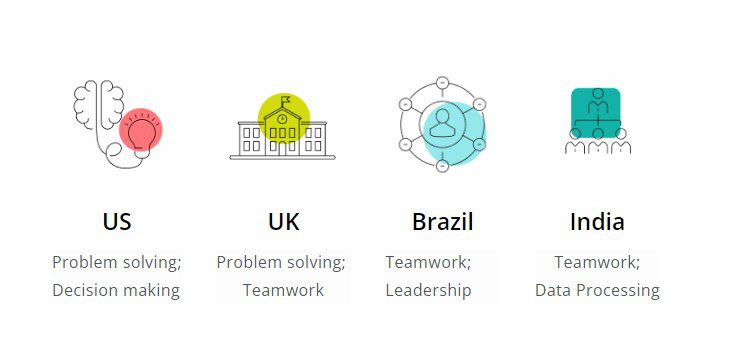Interpersonal skills essential in future of work
Says new global research from Google and Pearson.
Why You Should Care
Tech has changed the world of work forever.
But thriving in the future amid more digital transformation requires us to focus on our unique human skills, according to research from Google and Pearson.
Here's how HR can help.
HR leaders, don’t miss out: Join us in Las Vegas for free as a VIP guest at UNLEASH America.
Is technology coming for our jobs? This question has been doing the rounds again in recent weeks as the newest iteration of artificial intelligence, generative AI, and especially OpenAI’s product ChatGPT, has dominated the headlines.
Mike Howells, president of Pearson Workforce Skills, tells UNLEASH that “to an extent” technology will impact people’s job security.
But it’s not all doom and gloom. “It’s a global phenomenon that we’re all navigating in real time, together. People need to understand what these changes will mean for them, and how they can adapt”, adds Howells.
And according to Pearson and Google’s global research, the answer to future-proofing your job seems to be leaning into more human, interpersonal skills – aka those skills that for a long-time were referred to as ‘soft’ skills.
Howells adds “Technology is a tool. It is great for creating efficiencies and streamlining workflows, improving productivity, and enabling innovation.
“But it is the employees – with their powerful ‘soft’ skills, adept in problem solving, decision making, teamwork and leadership – who will be the greatest assets to help organizations grow and thrive in future.”
Pearson and Google surveyed 4,000 workers in the US, the UK, India and Brazil and identified that the top skills that employees are currently developing or looking to maintain to advance their career.

Credit: Pearson Skills Outlook.
Employers, keep investing in L&D
Beyond identifying the importance of interpersonal skills for the current and future workplace, Pearson and Google’s report noted that workers globally prefer to learn through their employer (74% globally – 73% in the US, 68% in the UK, 89% in India and 70% in Brazil).
So, it is no surprise that 92% expect their employers to step up around learning now and in the future.
Thankfully, employers are aware of these demands. Around half of employees said their companies see learning and development as a benefit (45% in the US, 49% in the UK, 51% in Brazil and 75% in India).
But where should employers, and particularly HR, focus their efforts?
First of all, on lifelong learning. More than three-quarters of workers are aware they need training throughout their careers – 80% in the UK, 81% in the US, 83% in Brazil and 88% in India.
Howells concludes: “HR leaders need to focus their efforts on cultivating those human skills if they’re to meet the demands of their staff and set themselves up for future success.
“Those training programs shouldn’t be exclusive or restricted to certain departments or tiers in the hierarchy, either.
“Demand for those skills will persist throughout careers, at whatever experience or level of seniority, so it’s most definitely an investment worth making.”
Are you ready to rethink learning?
The International Festival of HR is back! Discover amazing speakers from the world of HR and business at UNLEASH America on 26-27 April 2023.
Sign up to the UNLEASH Newsletter
Get the Editor’s picks of the week delivered straight to your inbox!

Chief Reporter
Allie is an award-winning business journalist and can be reached at alexandra@unleash.ai.
